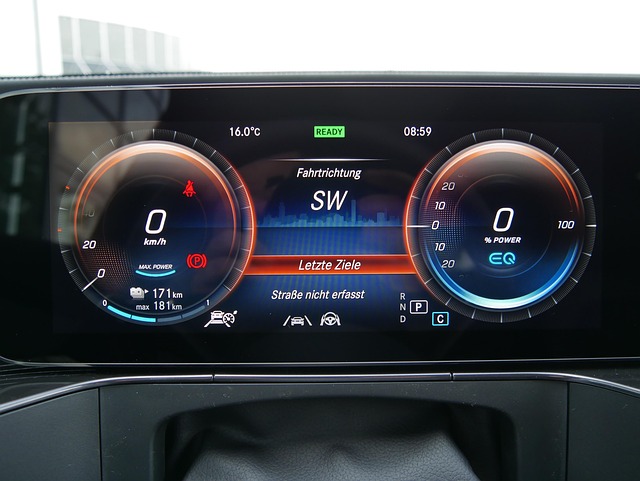
Mobile Charging Service Powering Electric Cars and Future Engines
The transition from fossil fuel to electric mobility is reshaping the automotive landscape in ways that were once considered speculative. As battery technology improves and charging infrastructure expands, a new service has emerged to support drivers on the go: the mobile charging service. This concept goes beyond roadside assistance for conventional cars; it addresses the unique needs of electric vehicles (EVs) that require quick, reliable, and adaptable charging solutions wherever they are parked or traveling.
The Evolution of Roadside Assistance for Electric Vehicles
For decades, automotive roadside assistance focused on mechanical breakdowns: a flat tire, a dead battery, or an engine failure. With the rise of electric cars, the paradigm shifted. While mechanical issues still occur, the most common challenge for EV owners is power loss. The mobile charging service was born from the need to bring a high‑capacity charger directly to the vehicle, ensuring that drivers can recover power on demand without waiting for a public charging station or a tow truck.
Key Features of a Mobile Charging Service
Unlike traditional towing services, a mobile charging service offers a range of components tailored to electric propulsion:
- Portable DC fast chargers capable of delivering 50 kW or more.
- Vehicle‑compatible connectors that adapt to various EV models.
- Real‑time monitoring of battery state‑of‑charge (SoC) and health.
- Integrated scheduling and payment via a mobile app.
These features enable drivers to resume their journeys quickly, often within 30 minutes, making the service indispensable for long‑haul trucking fleets, ride‑share operators, and everyday commuters.
Implications for Electric Car Manufacturers
Automakers are increasingly recognizing that a comprehensive support network is critical for widespread EV adoption. The mobile charging service complements manufacturer warranties and service plans by providing an on‑demand solution for unexpected power outages. Many companies now partner with service providers to offer bundled packages, ensuring that customers can access mobile charging when traveling outside the reach of home or public chargers.
Benefits for Fleet Operators
Commercial fleets face unique demands: high utilization rates, strict delivery windows, and limited downtime tolerance. A mobile charging service provides the flexibility fleet managers need to keep their vehicles operational:
- Reduced downtime: Quick power restoration translates to fewer lost hours and lower maintenance costs.
- Cost efficiency: By avoiding detours to charging stations, fleets save on travel time and energy consumption.
- Scalable support: As the fleet grows, additional mobile chargers can be deployed without the need for permanent infrastructure.
Technical Considerations for Mobile Charging
Delivering a high‑power charge at a remote location requires meticulous engineering. Mobile charging units must balance power, weight, and portability. Key technical elements include:
- Thermal management systems to dissipate heat generated during rapid charging.
- Battery‑in‑charger packs that provide a stable DC output while reducing overall vehicle weight.
- Smart charging algorithms that adjust voltage and current based on the vehicle’s battery chemistry.
- Robust safety mechanisms, such as over‑current protection and rapid shutdown in case of fault detection.
Integration with Vehicle Electronics
Seamless communication between the mobile charger and the EV’s battery management system (BMS) is essential. Modern EVs expose diagnostic data through standardized protocols like CAN bus or dedicated charging interfaces. The mobile charger interprets this data to:
- Determine the optimal charging rate to maximize battery lifespan.
- Notify the driver of remaining charging time and cost estimates.
- Update the vehicle’s firmware if necessary, ensuring continued compatibility.
Economic Impact on the Automotive Service Industry
The introduction of mobile charging services is reshaping the business model of roadside assistance providers. Traditional tow‑truck fleets are expanding into hybrid fleets that carry both towing equipment and portable chargers. This diversification opens new revenue streams:
- Subscription plans for EV owners that include free or discounted mobile charging.
- Partnerships with insurance companies to cover charging costs as part of roadside assistance policies.
- Revenue sharing models with fleet operators who outsource charging logistics.
Challenges and Future Directions
While the mobile charging service offers numerous advantages, several hurdles remain:
- Regulatory compliance: Charging equipment must meet safety standards set by national and regional authorities.
- Logistics coordination: Efficient routing of service vans requires sophisticated software to manage real‑time traffic and demand.
- Energy source management: For fully sustainable operations, mobile chargers need access to renewable energy, potentially through portable solar arrays or local grid integration.
Addressing these challenges will involve collaboration between manufacturers, service providers, and policymakers to create a resilient ecosystem that supports the long‑term growth of electric mobility.
Conclusion: Empowering the Future of Mobility
The mobile charging service represents a pivotal development in the transition to electric vehicles. By providing instant, reliable power wherever an EV needs it, this service eliminates one of the most significant barriers to electric mobility: range anxiety. As battery technology continues to mature and the charging network expands, the mobile charging service will become a standard component of automotive support, ensuring that drivers of electric cars and future engines can travel with confidence, safety, and convenience.



